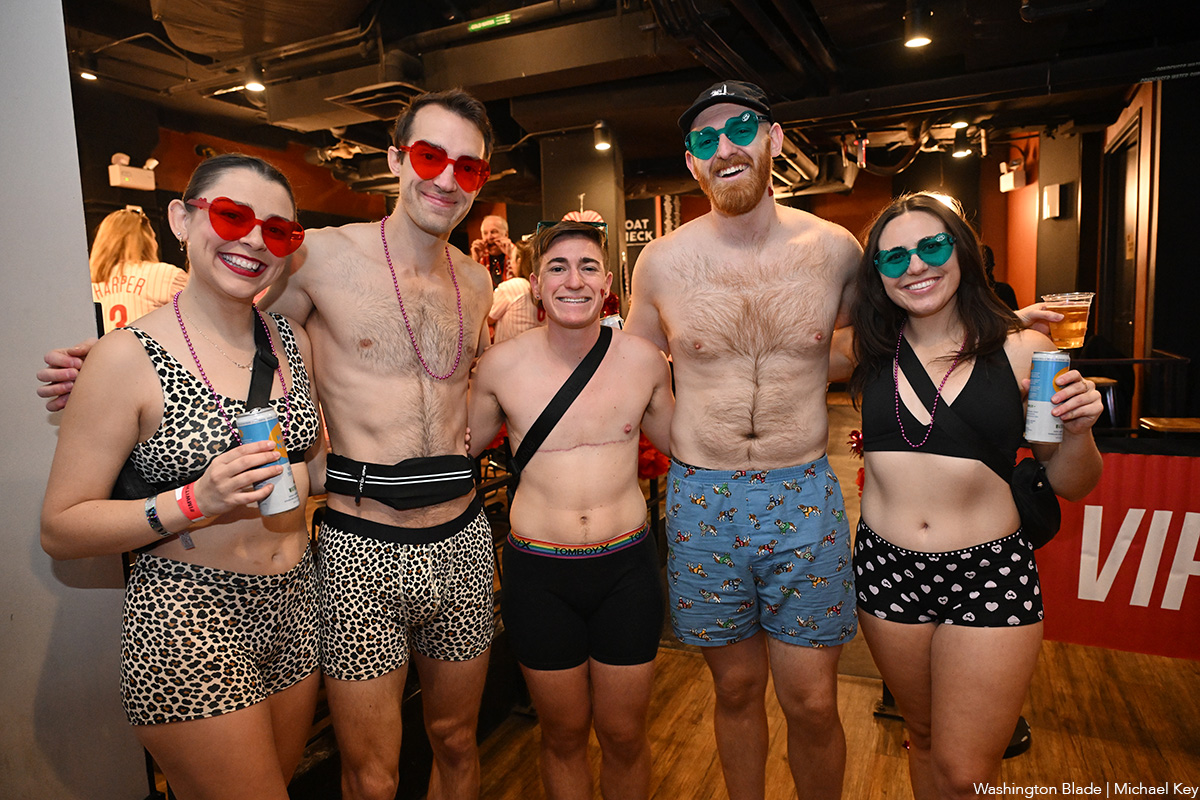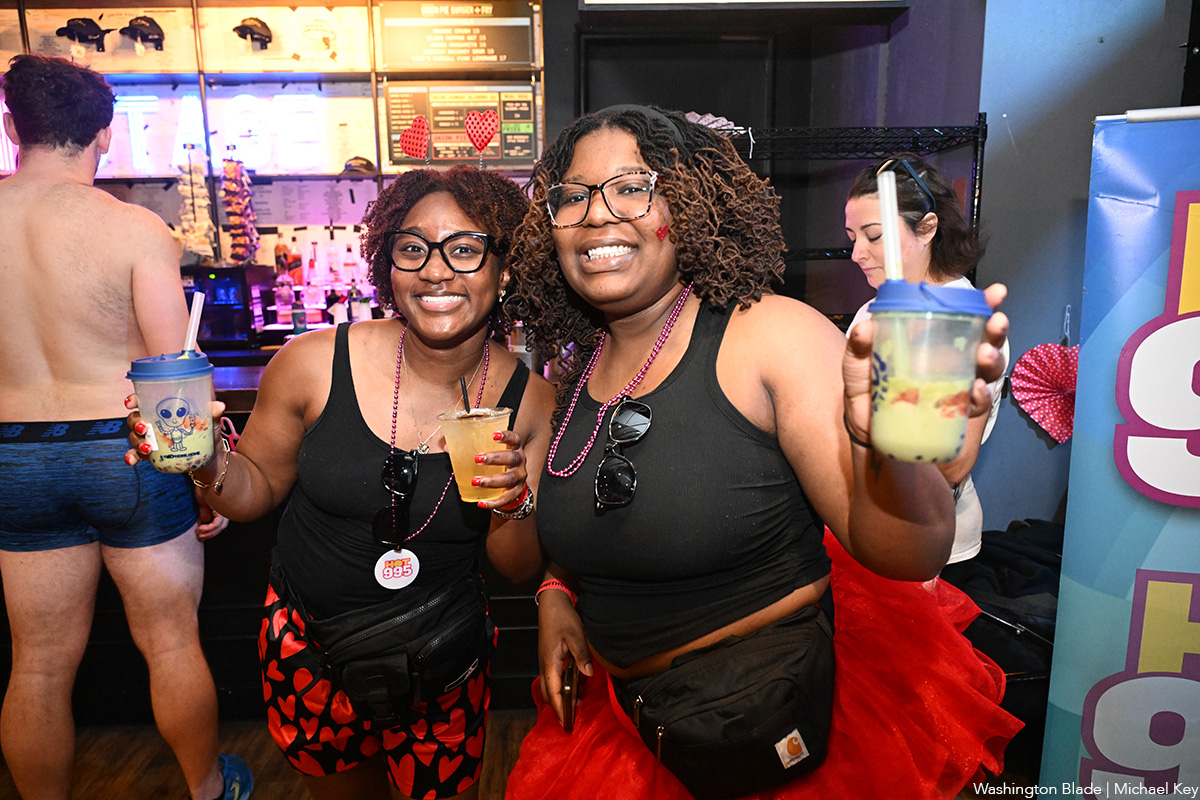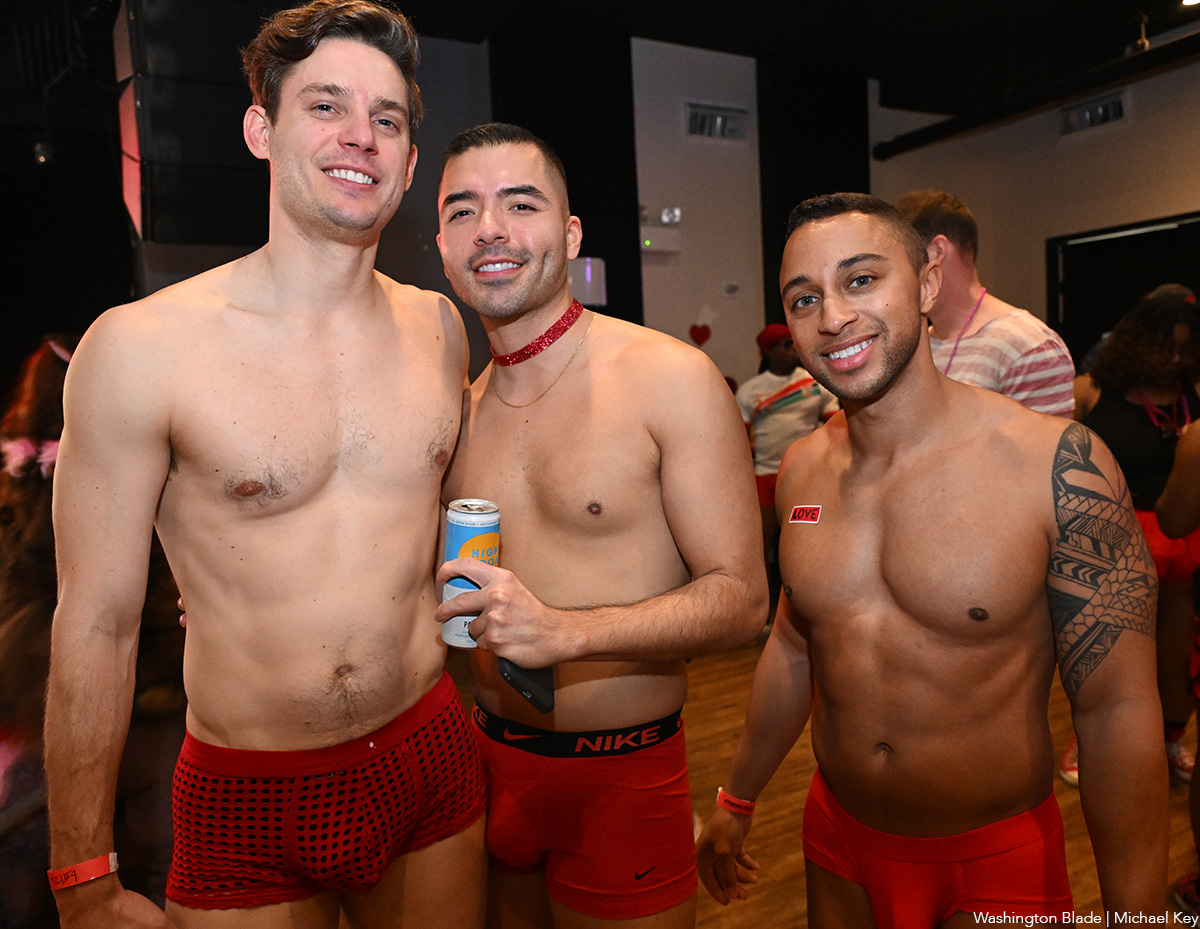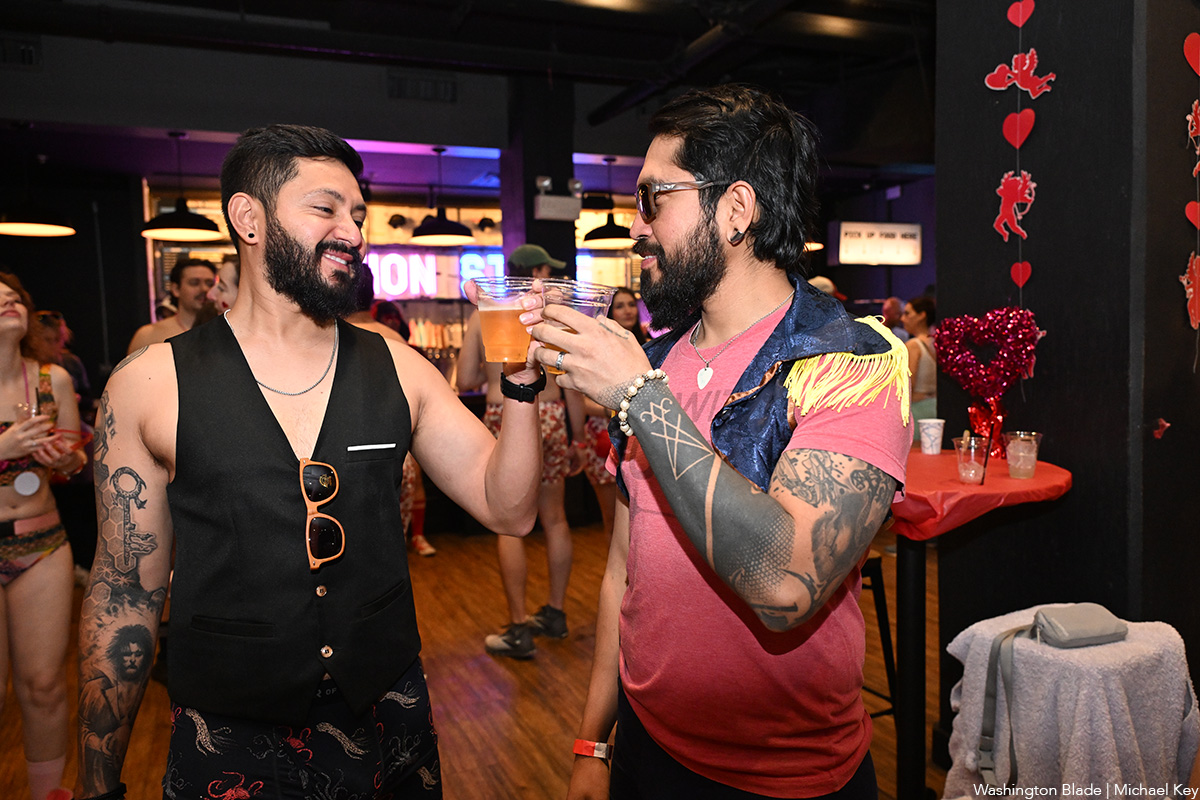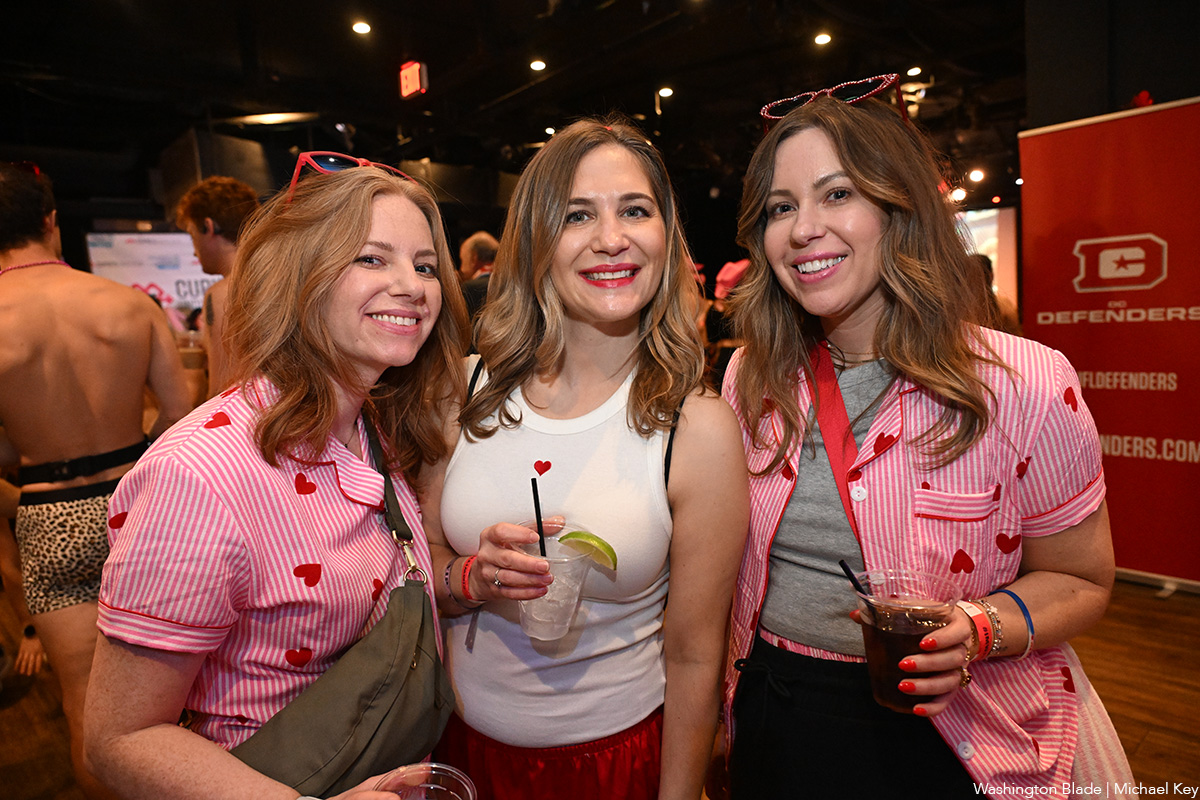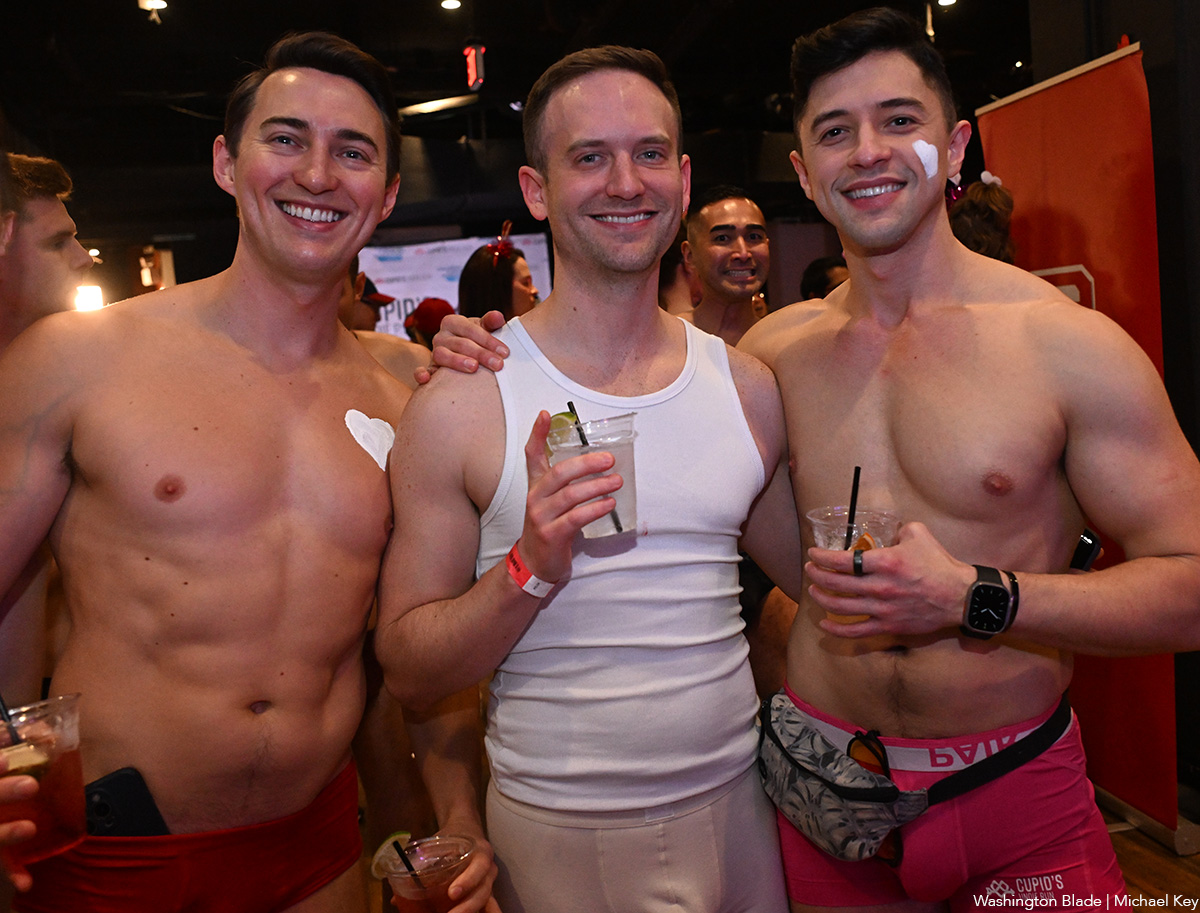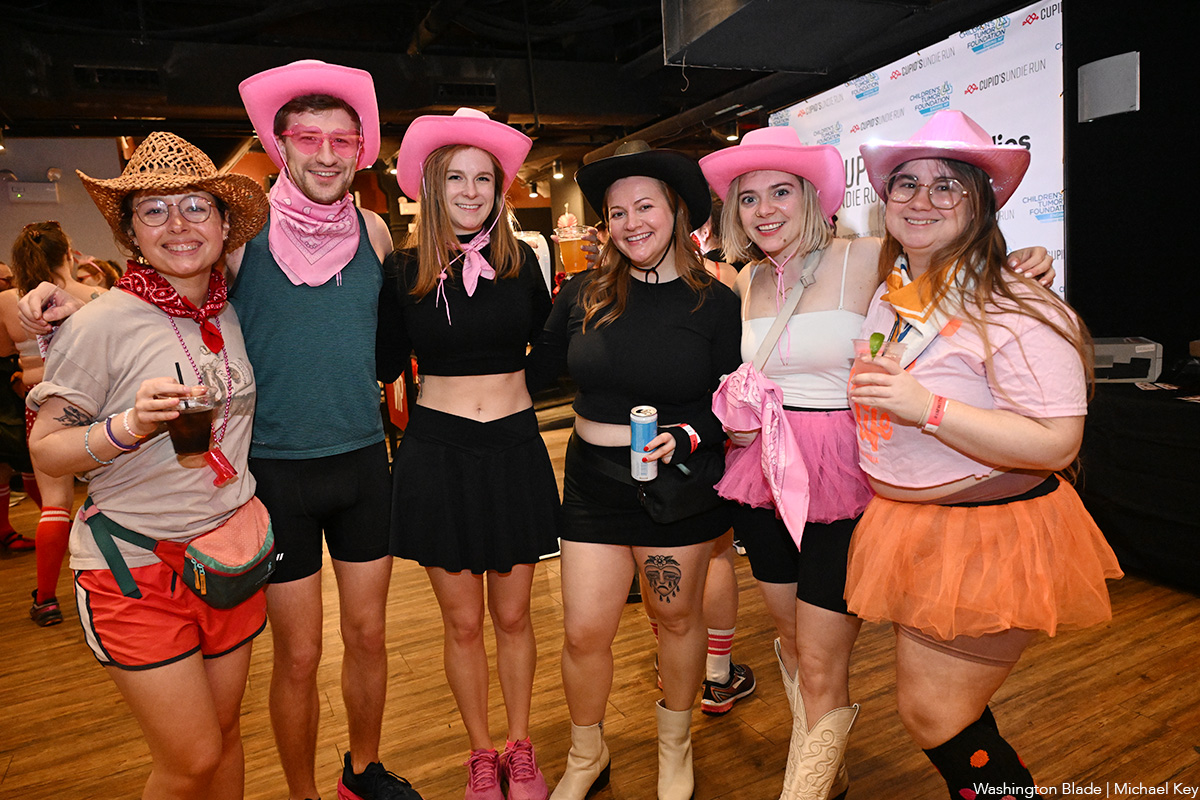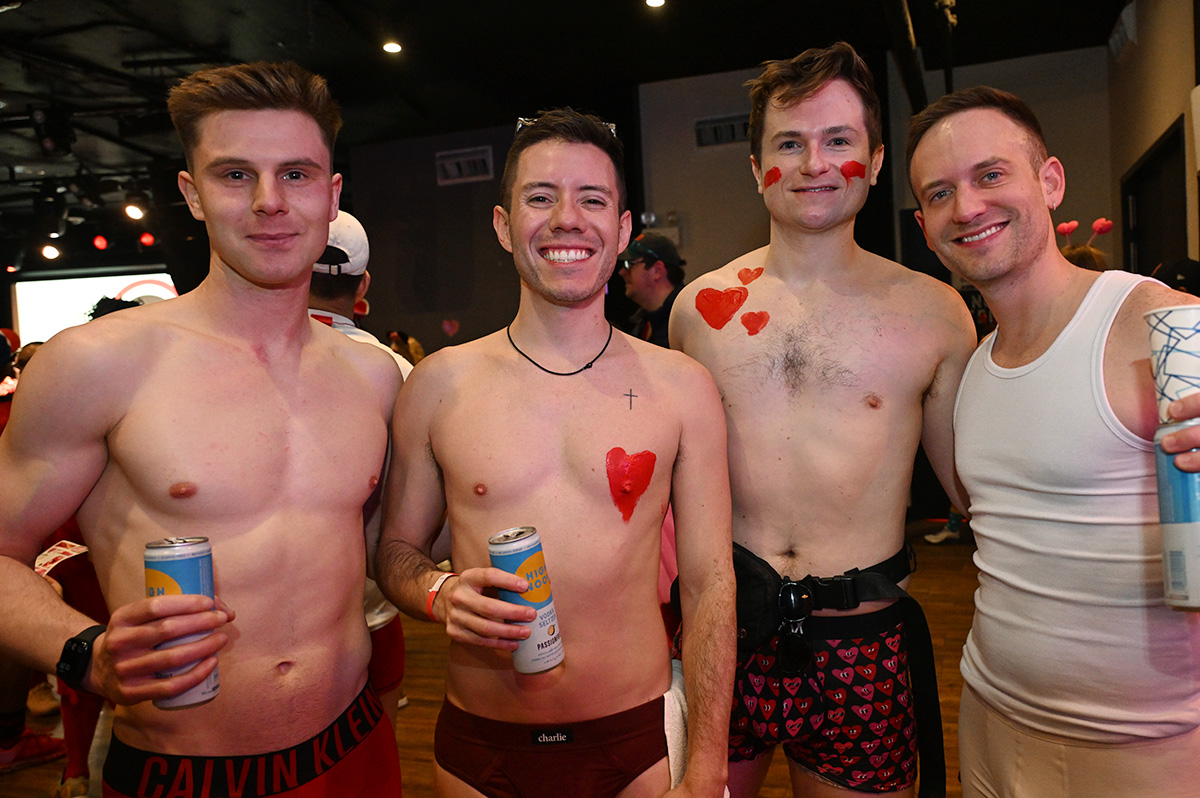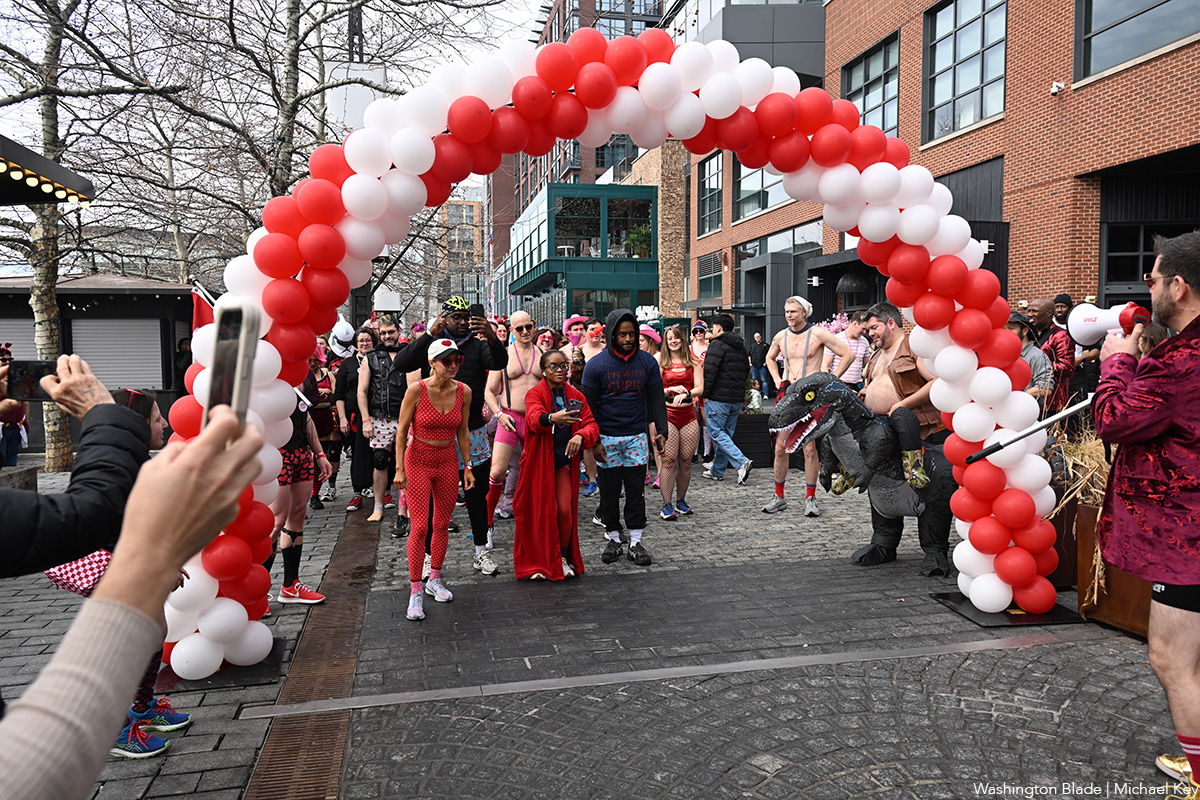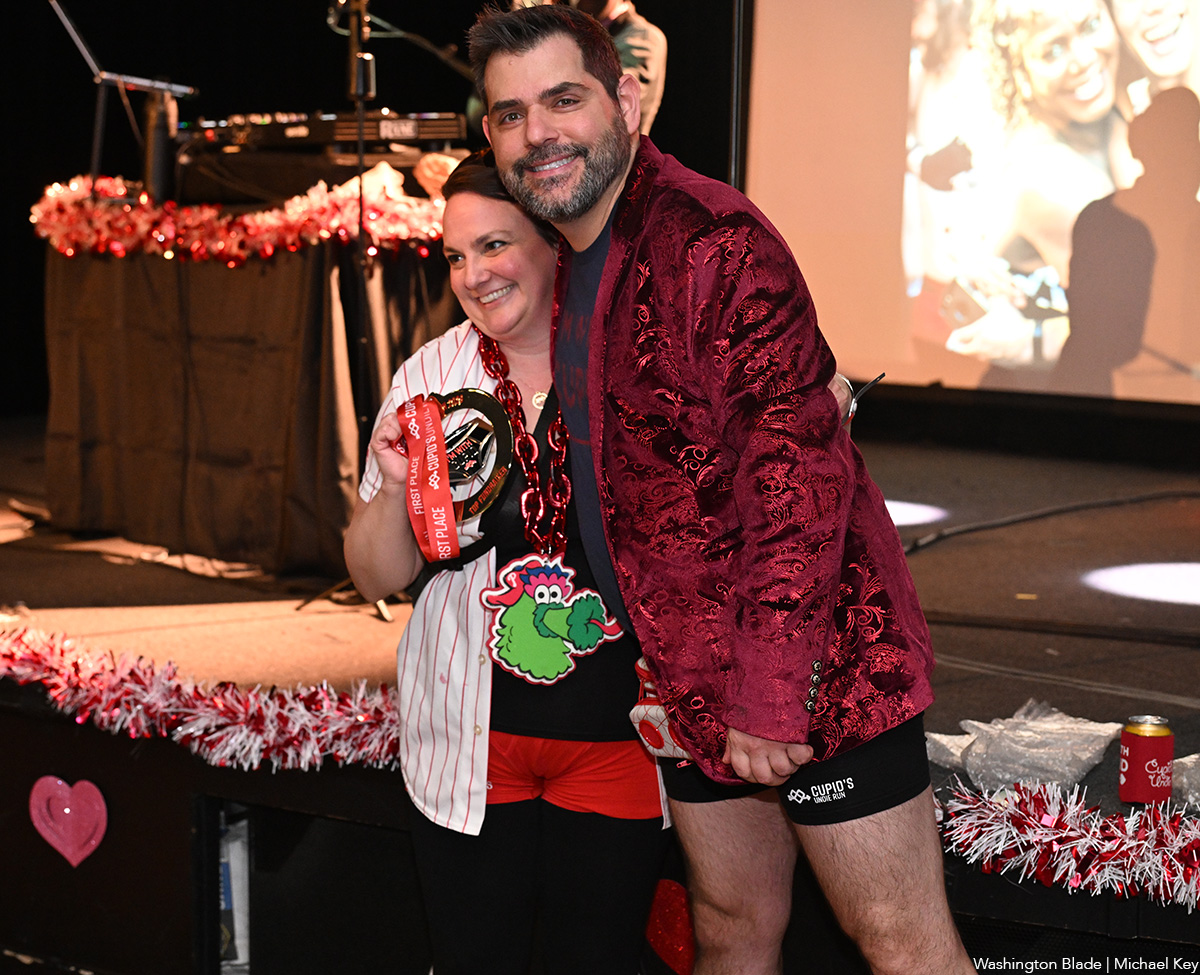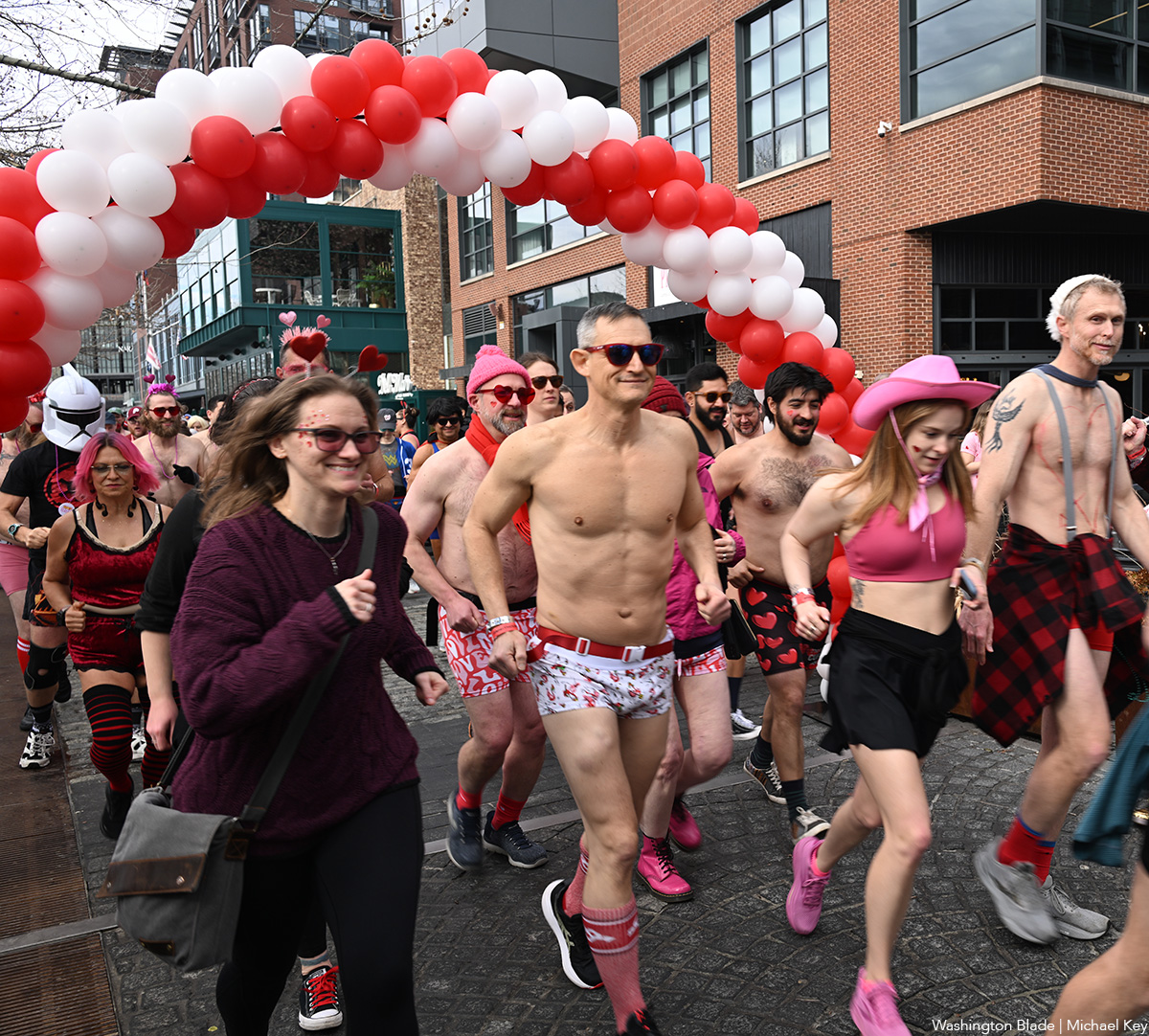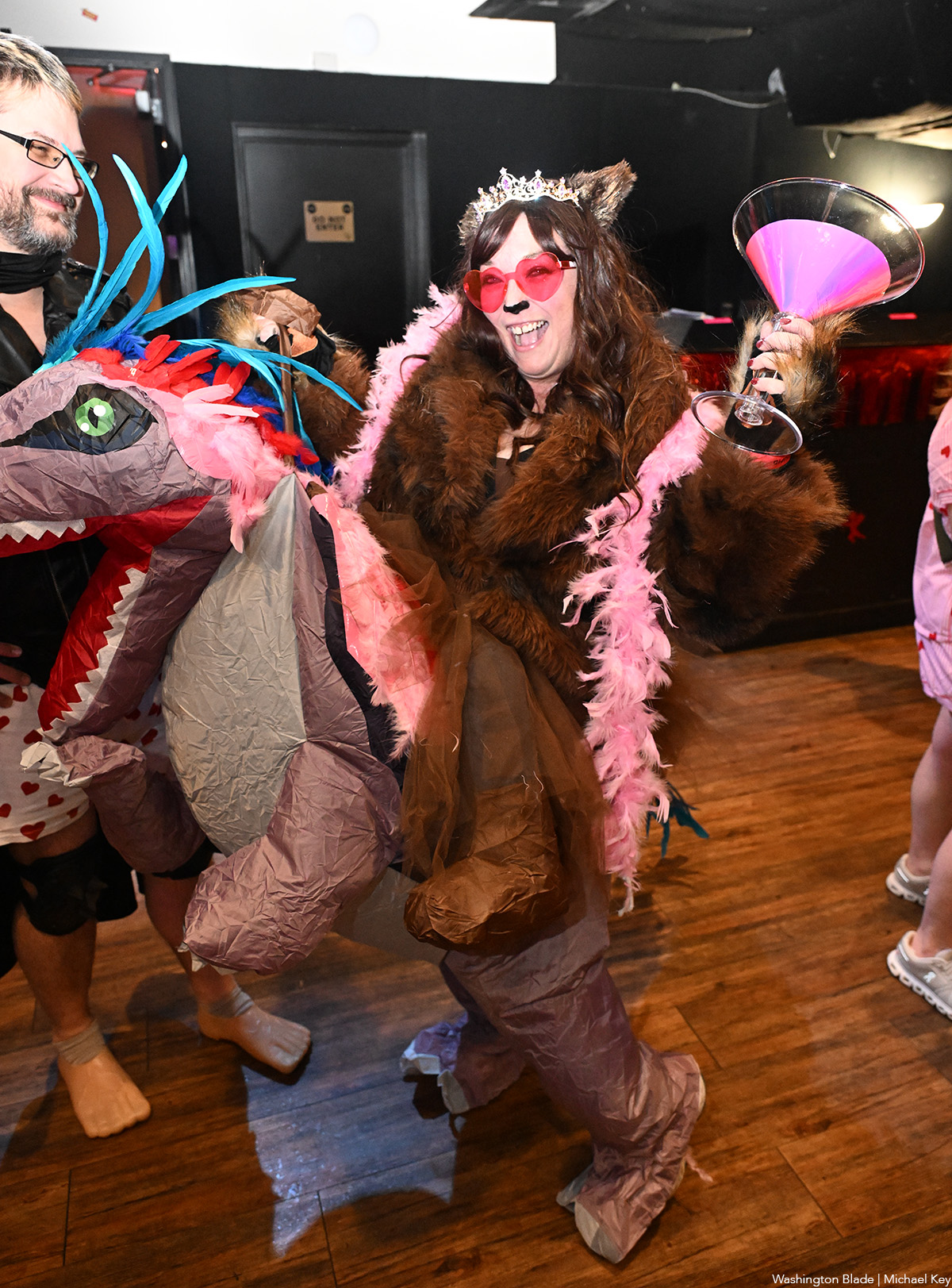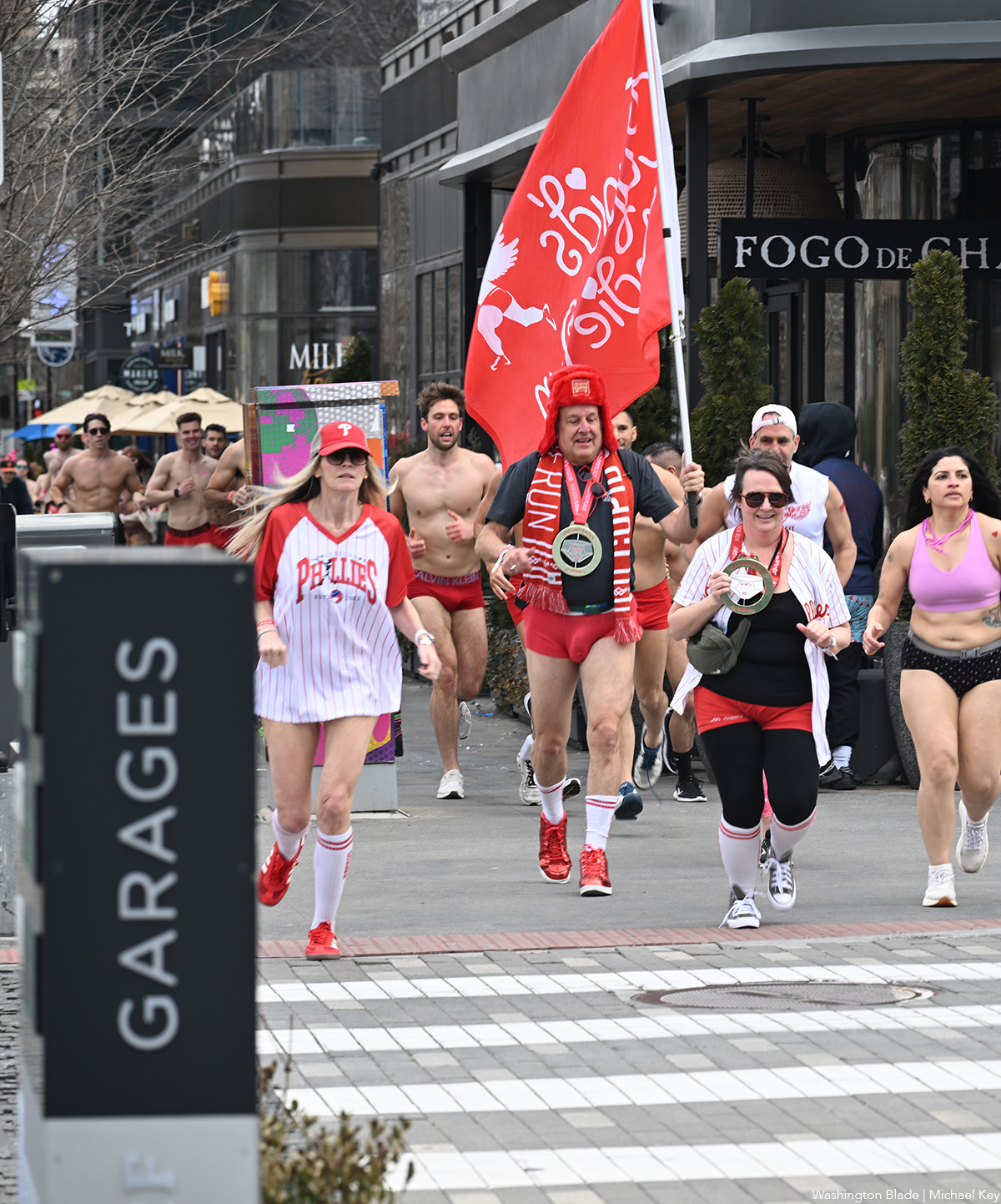Arts & Entertainment
Sonic cocktails
Pink Martini’s Lauderdale on life, music and his V Day show at the Kennedy Center
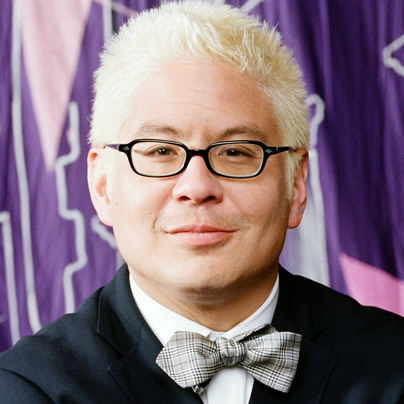
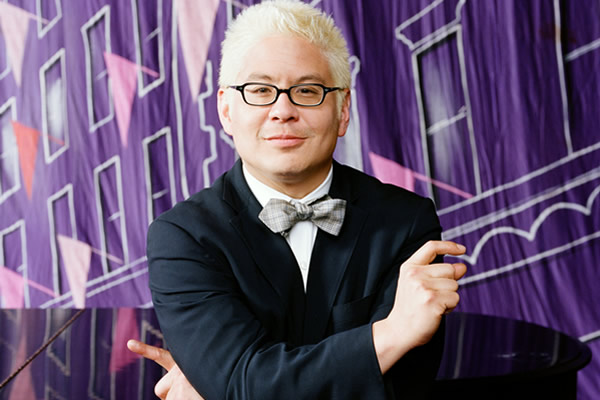
Thomas Lauderdale, founder and frontman for Pink Martini. (Photo by Autumn de Wilde)
Pink Martini
Thursday
8 p.m.
Kennedy Center Concert Hall
$30-$90
wpas.org
202-785-9727
Thomas Lauderdale, the gay founder and band director of Pink Martini, called just a few minutes after waking up one day last week from his home in Portland, where he lives in a house he says is haunted with his partner of eight years, Philip Iosca. Pink Martini returns to Washington next week for a Washington Performing Arts Society concert on Valentine’s Day at the Kennedy Center. Comments edited for length — Lauderdale is a big talker.
BLADE: Is it a good morning in Portland?
LAUDERDALE: Yes, I love it here. It’s sort of like the Pittsburgh of the west. And the guys are really cute here, more so than the girls. It seems like most cities either have cuter guys or cuter girls. Here it’s the guys.
BLADE: Pink Martini has performed with so many orchestras all over the world, yet your music is not straight-up classical at all. Are the players ever snobby about it or do they mostly just have fun with it?
LAUDERDALE: They’re really game for it. I think classical musicians who were snobby are becoming less so all the time. They have to be. Nobody’s going to hear them. Their audiences are dwindling all across America. … Most young people are watching “American Idol.” It’s just not a viable option to just play the traditional repertoire. … Orchestras all over the country are in the quandary of how to generate new audiences.
BLADE: So are the lines blurring between pop/rock and classical?
LAUDERDALE: Yes, they have to. … That was one of the reasons behind creating the band — I wanted to appeal to people outside their traditional dividing lines so it would connect with people who are really conservative, really liberal and everybody in between. This international styl with kind of an old fashioned pop feel, I felt it would be inspiriting and fun and a place where people could find commonality. And that’s kind of come true.
BLADE: Whatever happened to the Del Rubio Triplets (the group Pink Martini was formed to open for in 1994)? Surely they must be dead by now?
LAUDERDALE: Yes, sadly they are all dead. I think Millie, the oldest one by a few minutes, died about two summers ago. They were complicated — very Catholic, very anti-immigrant, yet so pro-gay and really Southern California. It was dizzying.
BLADE: Your stuff has this pre-classic rock era feel. Do you watch “Mad Men”?
LAUDERDALE: No. I don’t have a TV.
BLADE: You must feel some sense of identity with the pre-Vietnam era. Your music isn’t just that, but there’s kind of a Steve and Eydie vibe to some of it, right?
LAUDERDALE: Yeah, that sort of era between World War II and up to about 1964. It seems one of the goals of that era was building things that were beautiful and were built to last. You find refrigerators built in the ‘50s that are still working just fine. Later we saw, I think, a darker side to capitalism but I think it would have been nice if some of those trappings of that era had survived into the political liberation post-’64.
BLADE: On paper, it sounds so unlikely that a band like Pink Martini would make it. Do you feel you stumbled on something missing in the zeitgeist that there was a hunger for or does the cream always manage to rise with the truly talented in the end?
LAUDERDALE: Well, I don’t know. I think working on that first album, we were just trying to figure out a way to make it fun and accessible and not negative. It definitely helped that we were all from Oregon. This band would not have made it if we’d all lived in New York or San Francisco where everything is just so expensive and you have to be in five bands or something crazy just to make the rent. Here you can get by on very little, so you actually have time to think and just be.
BLADE: How many are in the band currently?
LAUDERDALE? Anywhere from eight to 14 depending. We’ll probably have about 10 in D.C. And we’ll maybe hire a string section.
BLADE: Can you tell us anything about the show?
LAUDERDALE: I haven’t thought that far ahead. It’s for Valentine’s Day so we might do something kind of romantic-ish.
BLADE: How gay is the band besides you?
LAUDERDALE: Well Ari Shapiro has been doing stuff with us and we’re both totally gay. And Timothy (Nishimoto). There are a few others who might be gay for pay. I think they could be tricked into it.
BLADE: You grew up in church. Were you aware at all of a mid-century trend where even the Lawrence Welk-era stuff was starting to be reflected in the gospel music of the time? There’d be stuff in the hymnals that even had waltz accompaniments.
LAUDERDALE: Well we had the red hymnal and the blue songbook where you had the newer stuff. That’s where you found the artsier, ‘70s stuff. You know, my Dad was the first openly gay minister in the Brethren church. He tends to like these cheesy inclusive modern hymns which I think are just cheesy and awful. When I go back to visit, I’m always pulling out these gloom and doom hymns — you know, we’re all going to burn — from, like, the 1880s. The melodies are just better, more beautiful. And I always win because I’m at the piano.

More than a dozen LGBTQ athletes won medals at the Milan Cortina Winter Olympics that ended on Sunday.
Cayla Barnes, Hilary Knight, and Alex Carpenter are LGBTQ members of the U.S. women’s hockey team that won a gold medal after they defeated Canada in overtime. Knight the day before the Feb. 19 match proposed to her girlfriend, Brittany Bowe, an Olympic speed skater.
French ice dancer Guillaume Cizeron, who is gay, and his partner Laurence Fournier Beaudry won gold. American alpine skier Breezy Johnson, who is bisexual, won gold in the women’s downhill. Amber Glenn, who identifies as bisexual and pansexual, was part of the American figure skating team that won gold in the team event.
Swiss freestyle skier Mathilde Gremaud, who is in a relationship with Vali Höll, an Austrian mountain biker, won gold in women’s freeski slopestyle.
Bruce Mouat, who is the captain of the British curling team that won a silver medal, is gay. Six members of the Canadian women’s hockey team — Emily Clark, Erin Ambrose, Emerance Maschmeyer, Brianne Jenner, Laura Stacey, and Marie-Philip Poulin — that won silver are LGBTQ.
Swedish freestyle skier Sandra Naeslund, who is a lesbian, won a bronze medal in ski cross.
Belgian speed skater Tineke den Dulk, who is bisexual, was part of her country’s mixed 2000-meter relay that won bronze. Canadian ice dancer Paul Poirier, who is gay, and his partner, Piper Gilles, won bronze.
Laura Zimmermann, who is queer, is a member of the Swiss women’s hockey team that won bronze when they defeated Sweden.
Outsports.com notes all of the LGBTQ Olympians who competed at the games and who medaled.
Theater
José Zayas brings ‘The House of Bernarda Alba’ to GALA Hispanic Theatre
Gay Spanish playwright Federico García Lorca wrote masterpiece before 1936 execution

‘The House of Bernarda Alba’
Through March 1
GALA Hispanic Theatre
3333 14th St., N.W.
$27-$52
Galatheatre.org
In Federico García Lorca’s “The House of Bernarda Alba,” now at GALA Hispanic Theatre in Columbia Heights, an impossibly oppressive domestic situation serves, in short, as an allegory for the repressive, patriarchal, and fascist atmosphere of 1930s Spain
The gay playwright completed his final and arguably best work in 1936, just months before he was executed by a right-wing firing squad. “Bernarda Alba” is set in the same year, sometime during a hot summer in rural Andalusia, the heart of “España profunda” (the deep Spain), where traditions are deeply rooted and mores seldom challenged.
At Bernarda’s house, the atmosphere, already stifling, is about to get worse.
On the day of her second husband’s funeral, Bernarda Alba (superbly played by Luz Nicolás), a sixtyish woman accustomed to calling the shots, gathers her five unmarried daughters (ages ranging from 20 to 39) and matter-of-factly explain what’s to happen next.
She says, “Through the eight years of mourning not a breeze shall enter this house. Consider the doors and windows as sealed with bricks. That’s how it was in my father’s house and my grandfather’s. Meanwhile, you can embroider your trousseaux.”
It’s not an altogether sunny plan. While Angustias (María del Mar Rodríguez), Bernarda’s daughter from her first marriage and heiress to a fortune, is betrothed to a much younger catch, Pepe el Romano, who never appears on stage, the remaining four stand little chance of finding suitable matches. Not only are they dowry-less, but no men, eligible or otherwise, are admitted into their mother’s house.
Lorca is a literary hero known for his mastery of both lyrical poetry and visceral drama; still, “Bernarda Alba’s” plotline might suit a telenovela. Despotic mother heads a house of adult daughters. Said daughters are churning with passions and jealousies. When sneaky Martirio (Giselle Gonzáles) steals the photo of Angustias’s fiancé all heck kicks off. Lots of infighting and high drama ensue. There’s even a batty grandmother (Alicia Kaplan) in the wings for bleak comic relief.
At GALA, the modern classic is lovingly staged by José Zayas. The New York-based out director has assembled a committed cast and creative team who’ve manifested an extraordinarily timely 90-minute production performed in Spanish with English subtitles easily ready seen on multiple screens.
In Lorca’s stage directions, he describes the set as an inner room in Bernarda’s house; it’s bright white with thick walls. At GALA, scenic designer Grisele Gonzáles continues the one-color theme with bright red walls and floor and closed doors. There are no props.
In the airless room, women sit on straight back chairs sewing. They think of men, still. Two are fixated on their oldest siter’s hunky betrothed. Only Magdelena (Anna Malavé), the one sister who truly mourns their dead father, has given up on marriage entirely.
The severity of the place is alleviated by men’s distant voices, Koki Lortkipanidze’s original music, movement (stir crazy sisters scratching walls), and even a precisely executed beatdown choreographed by Lorraine Ressegger-Slone.
In a short yet telling scene, Bernarda’s youngest daughter Adela (María Coral) proves she will serve as the rebellion to Bernarda’s dictatorship. Reluctant to mourn, Adela admires her reflection. She has traded her black togs for a seafoam green party dress. It’s a dreamily lit moment (compliments of lighting designer Hailey Laroe.)
But there’s no mistaking who’s in charge. Dressed in unflattering widow weeds, her face locked in a disapproving sneer, Bernarda rules with an iron fist; and despite ramrod posture, she uses a cane (though mostly as a weapon during one of her frequent rages.)
Bernarda’s countenance softens only when sharing a bit of gossip with Poncia, her longtime servant convincingly played by Evelyn Rosario Vega.
Nicolás has appeared in “Bernarda Alba” before, first as daughter Martirio in Madrid, and recently as the mother in an English language production at Carnegie Melon University in Pittsburgh. And now in D.C. where her Bernarda is dictatorial, prone to violence, and scarily pro-patriarchy.
Words and phrases echo throughout Lorca’s play, all likely to signal a tightening oppression: “mourning,” “my house,” “honor,” and finally “silence.”
As a queer artist sympathetic to left wing causes, Lorca knew of what he wrote. He understood the provinces, the dangers of tyranny, and the dimming of democracy. Early in Spain’s Civil War, Lorca was dragged to the the woods and murdered by Franco’s thugs. Presumably buried in a mass grave, his remains have never been found.
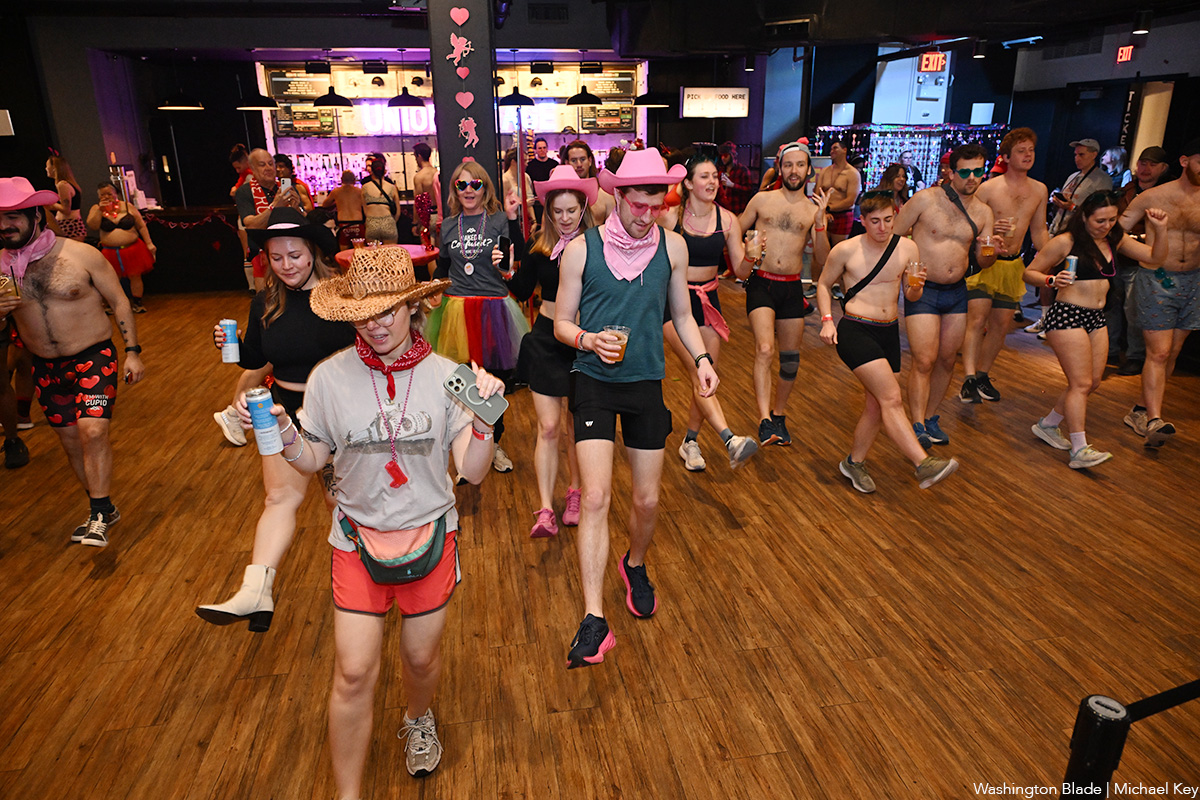
Cupid’s Undie Run, an annual fundraiser for neurofibromatosis (NF) research, was held at Union Stage and at The Wharf DC on Saturday, Feb. 21.
(Washington Blade photos by Michael Key)
